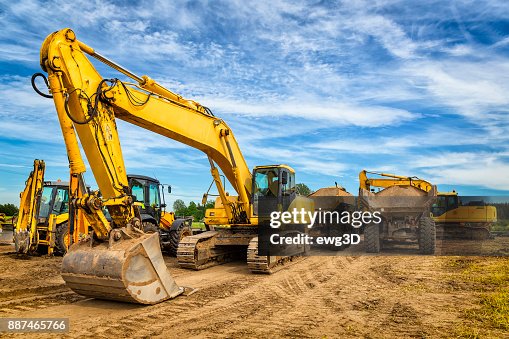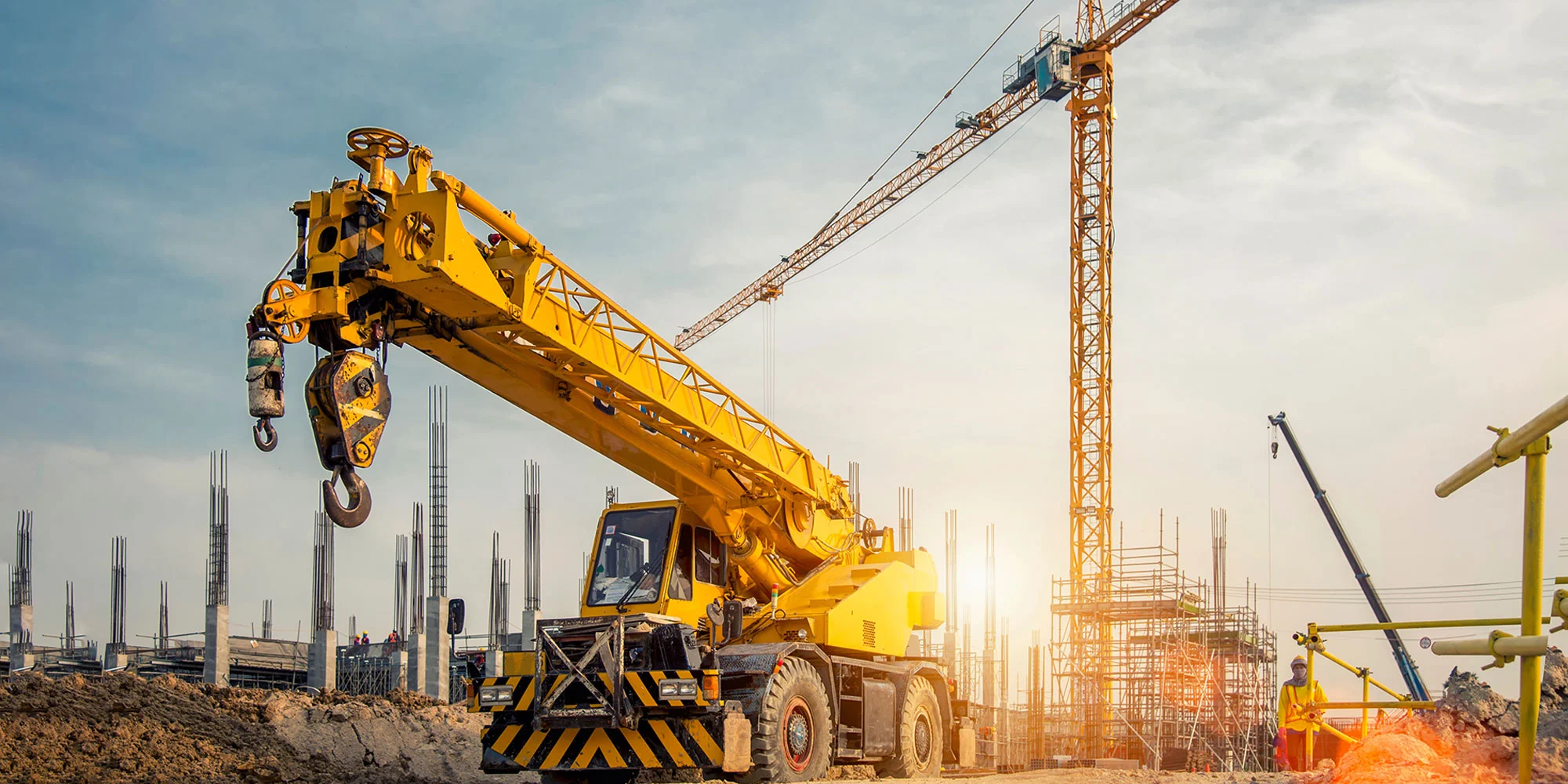Rental Company in Tuscaloosa, AL: Top-Quality Equipment for each Job
Rental Company in Tuscaloosa, AL: Top-Quality Equipment for each Job
Blog Article
Exploring the Financial Advantages of Leasing Construction Tools Compared to Owning It Long-Term
The choice between renting and having building and construction devices is pivotal for monetary administration in the industry. Renting deals instant cost savings and functional adaptability, allowing business to allocate sources much more successfully. On the other hand, ownership includes substantial long-term financial commitments, including maintenance and devaluation. As contractors weigh these alternatives, the impact on capital, job timelines, and innovation gain access to becomes increasingly significant. Understanding these subtleties is vital, especially when considering exactly how they straighten with details task demands and financial approaches. What aspects should be focused on to ensure ideal decision-making in this complex landscape?

Price Contrast: Renting Out Vs. Having
When reviewing the monetary implications of having versus renting out building and construction equipment, a detailed price contrast is essential for making notified choices. The choice between possessing and leasing can dramatically impact a business's bottom line, and recognizing the associated prices is crucial.
Leasing building and construction equipment normally entails lower in advance expenses, permitting organizations to allocate funding to various other functional demands. Rental prices can accumulate over time, potentially exceeding the expenditure of possession if tools is required for an extended period.
Conversely, having building devices calls for a significant initial investment, along with ongoing costs such as devaluation, funding, and insurance policy. While ownership can result in long-lasting cost savings, it likewise binds funding and might not give the very same degree of adaptability as renting. Additionally, owning devices necessitates a commitment to its utilization, which might not constantly straighten with project demands.
Eventually, the choice to possess or lease ought to be based upon a thorough analysis of specific task requirements, financial ability, and long-lasting tactical goals.

Maintenance Responsibilities and expenditures
The selection in between owning and renting out construction tools not just includes financial considerations yet additionally includes ongoing upkeep costs and responsibilities. Possessing tools needs a significant dedication to its upkeep, that includes regular assessments, repairs, and possible upgrades. These obligations can rapidly gather, causing unforeseen costs that can stress a budget plan.
In contrast, when renting out equipment, upkeep is usually the responsibility of the rental business. This plan enables service providers to prevent the economic concern linked with deterioration, as well as the logistical difficulties of organizing repair services. Rental agreements usually include stipulations for maintenance, indicating that professionals can concentrate on completing jobs instead than stressing over devices problem.
Furthermore, the diverse variety of devices readily available for lease enables firms to choose the current models with innovative technology, which can improve efficiency and productivity - scissor lift rental in Tuscaloosa, AL. By selecting leasings, businesses can stay clear of the long-term responsibility of equipment devaluation and the linked maintenance frustrations. Ultimately, evaluating upkeep expenses and obligations is crucial for making an educated decision concerning whether to lease or own building and construction devices, considerably influencing overall job costs and functional effectiveness

Depreciation Effect On Possession

A significant element to think about in the choice to possess building and construction equipment is the effect of depreciation on general possession prices. Devaluation stands for the decrease in worth of the devices with time, influenced by aspects such as usage, deterioration, and improvements in modern technology. As tools ages, its market value lessens, which can significantly influence the owner's economic setting when it comes time to offer or trade the equipment.
For building companies, this depreciation can convert to significant losses if the tools is not utilized to its max possibility or if it becomes outdated. Owners have to represent depreciation in their economic projections, which can cause greater general costs compared to renting out. Furthermore, the tax effects of devaluation can be complicated; while it may provide some tax obligation benefits, these are often countered by the truth of lowered resale value.
Ultimately, the worry of depreciation highlights the importance of comprehending the lasting financial dedication entailed in owning building and construction equipment. Firms should meticulously evaluate exactly how usually they will utilize the tools and the potential financial effect of devaluation to make an informed decision regarding possession versus renting out.
Financial Flexibility of Leasing
Renting out building and construction equipment provides considerable monetary adaptability, permitting firms to allocate resources much more effectively. This flexibility is specifically crucial in a market defined by changing project demands and varying workloads. By opting to lease, services can prevent the significant resources outlay required for purchasing equipment, protecting money circulation for other operational requirements.
In addition, renting out tools allows business to customize their devices options to specific job needs without the long-term commitment associated with ownership. This indicates that businesses can quickly scale their tools inventory up or down based on present and expected project requirements. As a result, this versatility minimizes the threat of over-investment in equipment that might end up being underutilized or out-of-date gradually.
One more monetary advantage of renting out is the capacity for tax obligation advantages. Rental repayments are typically thought about operating expenditures, permitting for prompt tax reductions, unlike depreciation on owned equipment, which is topped numerous years. scissor lift rental in Tuscaloosa, AL. This immediate expense acknowledgment can even more enhance a company's cash money placement
Long-Term Project Considerations
When reviewing the long-term demands of a construction company, the choice between having and leasing devices comes to be more complicated. Key variables to think about consist of project period, regularity of use, and the nature of upcoming jobs. For tasks with prolonged timelines, acquiring equipment may appear beneficial as a result of the potential for lower general prices. However, if the devices will certainly not be More Help utilized constantly throughout projects, having might bring about underutilization and unnecessary expenditure on upkeep, insurance policy, and storage.
The site web building and construction sector is progressing quickly, with brand-new tools offering boosted performance and security functions. This adaptability is especially advantageous for businesses that handle varied jobs requiring various kinds of devices.
Furthermore, monetary stability plays a vital role. Possessing devices frequently entails substantial resources investment and depreciation problems, while leasing permits more foreseeable budgeting and cash money flow. Eventually, the choice in between leasing and owning needs to be lined up with the tactical objectives of the building organization, thinking about both existing and anticipated job needs.
Conclusion
In final thought, renting out building and construction tools supplies significant financial advantages over long-lasting possession. Ultimately, the decision to lease rather than very own aligns with the dynamic nature of construction tasks, allowing for versatility and access to the newest equipment without the economic worries linked with possession.
As devices ages, its market value diminishes, which can considerably affect the proprietor's monetary setting when it comes time to sell or trade the equipment.
Renting construction tools uses significant financial adaptability, enabling companies to allot sources much more successfully.Furthermore, leasing tools allows business to tailor their devices choices to particular project demands without the lasting commitment connected with ownership.In verdict, leasing building and construction equipment offers significant monetary benefits over long-term ownership. Inevitably, the choice to rent out rather than own aligns with the dynamic nature helpful site of building and construction projects, permitting for adaptability and accessibility to the newest devices without the financial problems associated with possession.
Report this page